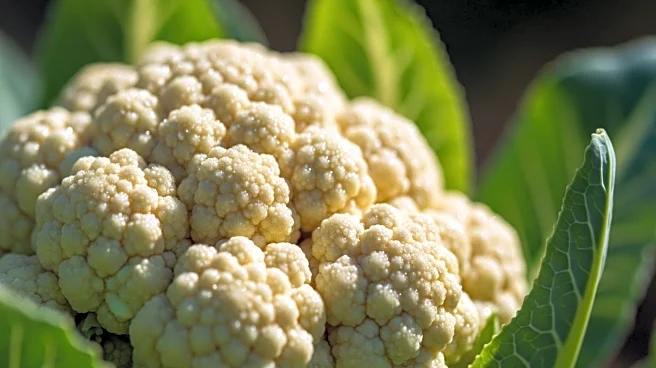What is the story about?
What's Happening?
A recent study published in Nature delves into the transcriptome profiling of mRNA and long non-coding RNA (lncRNA) involved in wax biosynthesis in cauliflower. The research focuses on two cauliflower lines, a wax-deficient mutant and a wild-type, cultivated under controlled conditions. The study utilized advanced RNA extraction and sequencing techniques to analyze gene expression levels, revealing significant differences between the two varieties. The findings highlight the role of lncRNA as key regulators in plant gene expression, impacting growth, development, and stress responses. The study generated over 43 Gb of raw sequencing data, which was filtered to retain high-quality reads for further analysis.
Why It's Important?
This research is significant as it enhances the understanding of genetic mechanisms underlying wax biosynthesis in plants, which is crucial for agricultural productivity and disease resistance. By identifying specific lncRNA involved in these processes, the study provides insights that could lead to improved crop varieties with better resilience to environmental stressors. This has potential implications for the agricultural industry, particularly in regions facing challenges from plant diseases and climate change. The findings could inform breeding programs aimed at developing crops with enhanced traits, contributing to food security and sustainable agriculture.
















